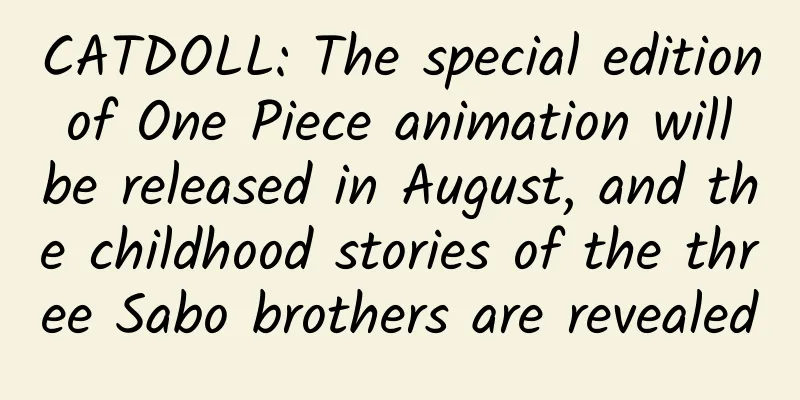CATDOLL: When will Sun Wukong defeat Captain America?

|
An interesting topic emerged at the recently concluded National People's Congress and Chinese People's Political Consultative Conference, "Monkey King VS Captain America." This came from a report by Xinhua News Agency, which discussed how to use new technologies such as the Internet to revitalize China's cultural industry. "Monkey King" literally means "Monkey King", which is the standard English translation of Sun Wukong. Using this English word has a strong sense of fashion - Marvel visual sense. This topic is closely related to the current emerging entertainment methods such as games, animation, film and television. More importantly, in this topic, Sun Wukong is no longer a virtual character, but an IP. The so-called IP (Intellectual Property) is a term that has emerged in the Internet era. In this context, characters, stories, and worldviews can all become IPs, which can be infinitely extended in various forms, such as film and television, games, literature, animation, etc. "Monkey King VS Captain America" sounds a bit nonsensical, but it is not lacking in connotation. First of all, after thousands of years in China, why did Sun Wukong go out to fight Captain America? Is it because Sun Wukong can transform into 72 different forms so he has a high chance of winning? In essence, this is because Sun Wukong (or "Journey to the West") can be said to be the number one IP in China today. In China, Sun Wukong is not only well-known for being the protagonist of Journey to the West, one of the four great classics, but more importantly, the Monkey King has penetrated deeply and widely into various forms of entertainment in China. Legends about him were circulating before Wu Chengen wrote Journey to the West. Later, he became the protagonist of various operas and developed the tradition of monkey shows. Monkey shows were popular, and Empress Dowager Cixi particularly liked to watch the Monkey King played by Yang Yuelou. It is for this reason that Sun Wukong appears in the Spring Festival Gala almost every year. In modern times, various film and television animation works have emerged in an endless stream, and classics include the 1964 animated film "Havoc in Heaven", the 1984 TV series "Journey to the West", and Stephen Chow's film "A Chinese Odyssey". In the Internet era, games such as "Fantasy Westward Journey" and "God of War" have achieved great success. This kind of IP expansion from ancient times to the present is called "pan-entertainment" in another popular Internet term. Sun Wukong under "pan-entertainment" has been deeply rooted in the hearts of the people. In 2000, there was an online selection of "the most popular character image in Chinese history". Sun Wukong beat Zhao Yun, Zhuge Liang, Lin Daiyu, Liu Bowen, Lu Ban, Wu Song, Lu Zhishen and other strong opponents, which shows his popularity. Internationally, Sun Wukong is one of the few Chinese IPs with considerable international influence. In the United States, there are three IPs related to China in mass entertainment: Kung Fu Panda, Mulan and Sun Wukong. Among them, Kung Fu Panda is a "Chinese IP" created by foreigners who love Chinese cultural elements and combine their own national characteristics. Just like Shilong in the Japanese manga "Saint Seiya" and Rock Lee in "Naruto", it is a result of the influence of Chinese culture overseas, but it is not our own IP after all. Mulan is famous for the Disney animation of the same name. Sun Wukong has been selected by film and television works many times. The films and TV series about Sun Wukong shot in the United States include the 2008 Jet Li version ("The Forbidden Kingdom") and the 2001 Russell version. The most important thing is that although the level of works related to Sun Wukong (basically very bad) is far from the level of "Kung Fu Panda" and "Mulan", it does not affect Americans' favor for this IP. In the United States, there are three Chinese-related IPs in mass entertainment: Kung Fu Panda, Mulan, and Monkey King. In Japan, the influence of Sun Wukong is even greater, involving almost all forms of entertainment. The world's first TV series "Journey to the West" was filmed by the Japanese (1978). But the most mainstream is still in animation. Almost everyone who likes Japanese animation can immediately think of two masterpieces-"Dragon Ball" and "Saiyuki". The former is one of Japan's national animations and the most influential Japanese animation in the world. The spread of the Sun Wukong IP in Japan's pan-entertainment has never stopped. We can see that "Doraemon" and "Crayon Shin-chan" have special Journey to the West theme theaters, we can see the tailed beasts and summoning beasts related to "Naruto" and Sun Wukong, and we can see that in the game "Samurai Warriors" of Koei Company, the ancient Japanese politician Toyotomi Hideyoshi, nicknamed Monkey, holds the golden hoop. "Saiyuki" uses the names of characters from "Journey to the West". The comic began serialization in 1996 in "Monthly gfantasy" under the famous gaming giant ENIX. As an animation IP, Sun Wukong's influence on Japan is not limited to various adaptations. The masterpiece "Havoc in Heaven" by the Wan brothers (Wan Laiming and Wan Guchan) influenced Osamu Tezuka, who is known as the God of Japanese comics. The surprising cultural influence of anime In fact, the IP of Sun Wukong is naturally suitable for animation and has a great relationship with animation. From a domestic perspective, the reason why Sun Wukong can lead the IPs of the other four great classics is precisely because "Journey to the West" is unique in animation. There are no well-known animation works for Water Margin, Romance of the Three Kingdoms, and Red Mansions (there are three kingdoms, but that is the "Three Kingdoms" by Japanese cartoonist Mitsuteru Yokoyama, which has little influence in China). The Three Kingdoms is on par with Journey to the West in almost all fields, and is even ahead in the field of games, but it lacks even a classic animation (the animation here is mainly animation works in the contemporary sense. Traditional comic strips can only be understood as an art form because there is no subsequent development, which is different from contemporary animation). From a global perspective, the influence of anime works such as "Dragon Ball" has also made Sun Wukong very well-known in Europe and the United States. This is not only incomparable to Sun Wukong's "suspected source" - the Indian monkey god Hanuman, but also incomparable to the other three great masterpieces - "Romance of the Three Kingdoms" and other works, whose influence in Europe and the United States only exists in the academic world. There are actually many examples of IPs like Sun Wukong that have been promoted by animation and become popular in foreign countries. Many young Chinese people today know some of the history of the late Edo period in Japan, and their familiarity even surprises many Japanese intellectuals who come to China. "Why do young Chinese people know so many stories about Katsura Kogoro, Takasugi Shinsaku, the Shinsengumi, Sakamoto Ryoma, etc.? Our own young people don't know them." In China's general education history textbooks, the history of the late shogunate in Japan is basically just a passing mention. Knowing about the four powerful feudal domains in the southwest, the restoration of imperial rule, and the promotion of industry and commerce is considered a top student. Not to mention textbooks, even history teachers don't know that Kido Takayoshi, one of the three great men of the Meiji Restoration, was originally named Katsura Kogoro. Young people's understanding of these things comes from classic anime such as Rurouni Kenshin and Gintama. Anime can help foreigners get familiar with the history and culture of their own country, and its power is truly amazing. Therefore, if we want to create a world-renowned Chinese animation IP, Sun Wukong is the most suitable choice, and its foundation is the best. And animation is the most suitable to promote the Sun Wukong IP to the world, and Japanese animation has already set an example in this regard. How does Chinese animation support Monkey King? IP alone is not enough, the key is whether the IP can be done well. Although there have been masterpieces such as "Havoc in Heaven", can today's Chinese animation industry take on this responsibility? In fact, China is not short of animation talents, not to mention the predecessors like the Wan brothers. Even today, if you watch any popular Japanese animation, you will find that there are a large number of Chinese people involved in the production team. In Europe, Zhang Xiaoyu, a Chinese cartoonist who studied in France and specializes in drawing medieval and ancient war themes, has also produced excellent works. There is no shortage of talent, and funding and policies are not the most important. It is that there was no industry in the past. Without an industry, even if there is temporary policy and financial support, it will not last long. Without an industry, cartoonists will starve to death, animation will lose money, and it will be impossible to produce good works. Industry is born out of need. This is true not only for entertainment, but for all forms of culture. Why were the Four Great Classics created in the Ming and Qing dynasties? Because the rise of popular culture created a demand for novels. Why are there so many painting masters in the small country of Holland? Because the wealthy bourgeoisie wanted to decorate every room with paintings to improve their taste and style. Why can the rise of American comics and Hollywood movies be traced back to the 1920s and 1930s? Because the Great Depression and the World War gave rise to the demand for a more relaxed and fast-paced popular culture. There is no doubt that Chinese people have a demand for animation, as evidenced by our love for "Havoc in Heaven", "Black Cat Sheriff", Marvel, "Saint Seiya" and "Naruto". Then the only thing left is the industry. The formation of an industry is generally marked by several signs, including a large number of practitioners, a sustainable business model, an industrial structure, and the emergence of upstream and downstream relationships. Fortunately, the intervention of the Internet has shown signs of the formation of the industry. Recently, Tencent Interactive Entertainment released a set of posters to promote its annual press conference on March 30. The slogan of the animation section is "It is unjust if Chinese animation does not rise". I believe that many animation practitioners were touched after seeing it. Commercial companies are guided by profit, and using such slogans proves their strong interest in animation. What's more, as one of the world's largest Internet companies, Tencent's every move attracts the attention of the outside world. The popularity of the movie "One Hundred Thousand Bad Jokes" at the beginning of the year also made people see the level of Internet animation. The hope of Chinese animation Why is Internet animation so powerful? First of all, the Internet eliminates the physical distance between content producers and consumers. Cartoonists face readers directly online, and readers choose their favorite works. The high-quality ones immediately stand out. This model is similar to the online literature model. Secondly, the management and protection of copyrights are more in place. In the past, it didn’t matter whether Chinese animation was good or bad, because there was almost no copyright income. But in the eyes of Internet companies, the management of animation IP copyright is a huge source of profit. For example, Tencent Animation’s work "Zombie Brothers", reportedly sold its mobile game copyright for 50 million yuan, setting a record in the industry. Only when animation works can bring commercial returns can there be a virtuous cycle of the industrial chain. Qiduyu's "Corpse Brother" and Tong Yao's "Ace Inspector" have become representatives of China's emerging comics. As a result, there is an explosion of talents and good works. Qiduyu, the author of "Zombie Brother", was originally just an unknown original artist in Zhejiang. Tong Yao, the author of "Ace Censor", another work with over 100 million hits in just half a year, was originally just an employee of a TV station in Bozhou, Anhui, a small fourth-tier city. Before the Spring Festival, Tong Yao published an autobiography on his Weibo, telling about his ups and downs in life, which attracted a lot of attention. If the power of the Internet had not intervened in animation, it would be hard to imagine that Tong Yao could have achieved such results in a small fourth-tier city. Driven by a good industrial model, heroes will inevitably emerge. This is particularly evident in "pan-entertainment". If there is no online literature industry, will there be greats such as Mao Ni, Nanpai Sanshu, and Tang Jia San Shao? If there is no "The Voice of China", will there be a large number of grassroots singers who have become popular? Many people have stepped out of their ordinary roles and shined brightly, just like Liu Xuande, who made straw sandals, Guan Yu, who sold beans, and Zhang Yide, who sold pork, who went on the road to the world together. This is the effect of the times. From this point of view, Chinese cartoonists born in this era are lucky, at least luckier than their predecessors. Tong Yao, Qidu Yu, Han Wu (Shi Leng) and others can display their talents on the Internet platform and get the high material rewards they deserve (Qidu Yu is reported to have become a professional cartoonist with an annual salary of one million). Only then will more talents be invested in this industry and produce more good works. Therefore, whether Chinese animation can produce a god-like work with Sun Wukong as the theme in a few years is actually irrelevant, just like whether Marvel chooses Norse mythology (Thor) or Greek mythology is not the key. As long as the industry is formed and a healthy ecological model is established, more high-quality IPs will continue to be produced. When works such as Shi Leng, Corpse Brothers, and Ace Inspector are produced in large quantities, we will no longer be worried about the lack of IP. |
>>: CATDOLL: Interview with Daisuke Namikawa, the Italian CV of "Hetalia: The World Twinkle"
Recommend
CATDOLL: Italy returns to "Hetalia" 15 years later and decides to produce a new animation
According to the January issue of Comics Birz, a ...
CATDOLL: "My Teen Romantic Comedy Is Wrong As Expected" C87 released a new PV faster than the official website
Damn C87, they only showed the PV on site, and yo...
CATDOLL: Mamoru Oshii's fantasy work "The Adventures of Goose" will be released in theaters
"The Adventures of Nippon Oshii" (trans...
CATDOLL: The animation "Valrna of the Azure EXODUS" will have a super big announcement
The official website of Valrhona EXODUS recently ...
CATDOLL: Officials forced to die together: the scale of the pornographic book released for the general election of "To Love-Ru Darknes"
The popular anime work "To Love-Ru Darkness&...
CATDOLL: Anime Starry Sky Evening News: Japanese animation director is worried about the future of Zhenhunjie's first PV
Good evening, everyone. It's time to complain...
CATDOLL: The ending song of the new animation "Aerial Combat Wizard Candidate Instructor" in July has been confirmed
The band "la la larks" formed in 2012, ...
CATDOLL: Minami Yuuka's second album "ONE DAY" full song preview version released
Yuuka Minami's second album "ONE DAY&quo...
CATDOLL: Japanese doujinshi website P站 was attacked by Taobao and was embarrassed abroad
Pixiv is a virtual community mainly composed of J...
CATDOLL: It's not finished yet! Episodes 10-13 of the anime "God Eater" will be broadcast this winter
The original anime "God Eater", which h...
CATDOLL: "Is It Wrong to Try to Pick Up Girls in a Dungeon?" Voice Actor Real Person COS
With the popularity of the new anime "Is It ...
CATDOLL: "Dragon Ball: Super" Episode 64 Preview: Fused Zamasu Appears!
The 64th episode of the TV animation "Dragon...
CATDOLL: The latest Chinese version of "Doraemon: Stand by Me" has said goodbye to the robot cat
The animated film "Doraemon: Stand by Me&quo...
CATDOLL: The new female voice actor has a very high appearance and attracted attention. Netizens exclaimed that she is so beautiful
Nowadays, the Japanese voice actor industry, espe...
CATDOLL: New character Tomohiro Ichikawa joins the live-action movie "Smile on the Cloudy Day"
The live-action movie "Smiling on a Cloudy D...









